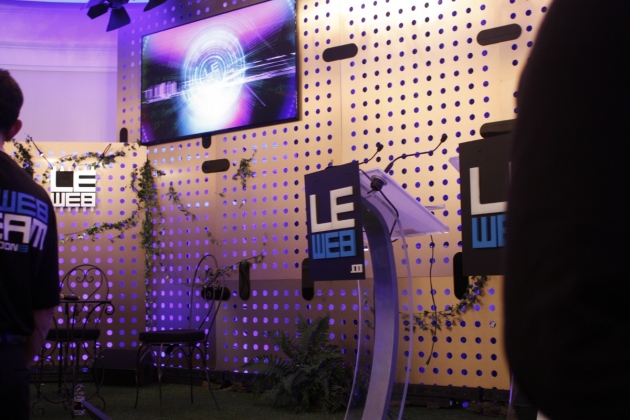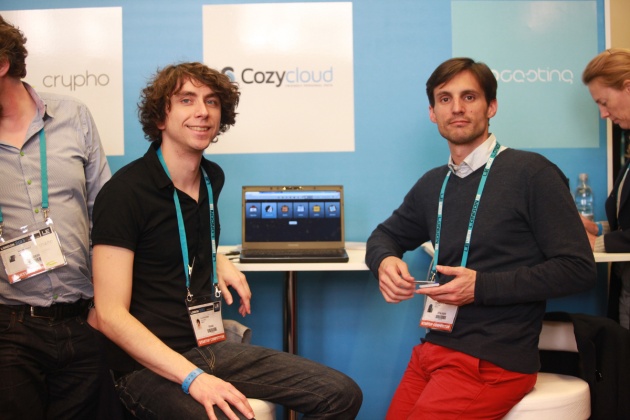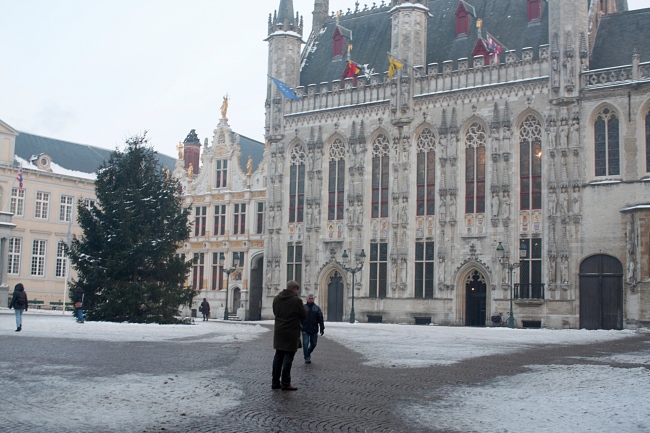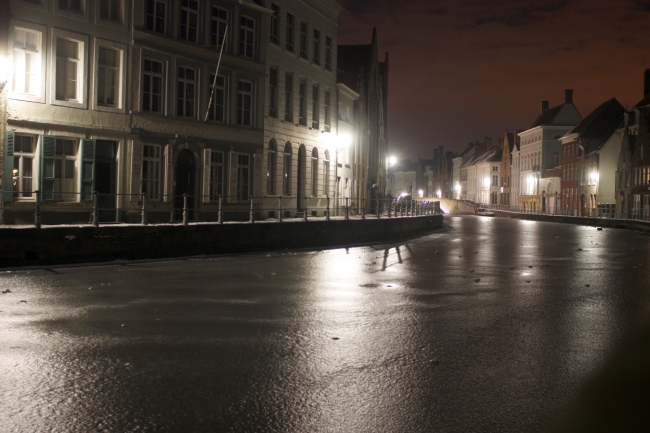What happens when you are selected for LeWeb Startup Competition?
2013/06/13 1 Comment
One month ago, Cozy Cloud was selected for LeWeb London Startup Competition semifinals. That was quite a good surprise and we were not ready yet to compete at such kind of event. So last month was mainly dedicated to be ready to reach the final stage. Being selected there allowed us to pitch in front of big VCs and have a stand to showcase our product. That was a great opportunity to make our funding search really easier. The aim of this blog post is to share with you how things went and what changed for our company.
Before the competition
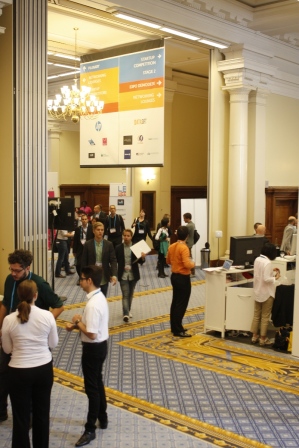 Motivation
Motivation
Being selected is already a great achievement: only 16 start-ups are selected among 400. So after more than one year of work, that was really good to be considered by our peers as a competitive start-up. Moreover, that was a great motivator for the whole team.
Social Proof
Once you are selected to LeWeb, a lot of people from the start-up ecosystem don’t consider you the same way. When you speak to them, they listen more carefully than before. That’s a little bit sad but it seems that the way things work.
Announcements
We wanted to reach our community and have a little bit traction before pitching. So we made announcements about our product on two Hacker websites: LinuxFr (close to our users) and Hackernews (less focused but wider audience). They both worked pretty well (1450 clicks for the first one and 59 up-votes / 3000 visitors for the second one) and our main Github repository reached the 100 stars. Unfortunately, that was not enough to put it in a pitch, but that brought new users to Cozy Cloud. So during two weeks, we helped people on our IRC channel to setup Cozy Cloud on their home servers. With that feedback we improved our installation script, created a trouble shooting section and learned what to improve next. Then we changed the home page of our website to make it more appealing and send a newsletter. Being selected urged us to get closer to our users.
Following this announcements, someone from Mozilla France endorsed us for being candidate to WebFWD, the Mozilla accelerator. Their values perfectly match ours and they have great things to teach about community management and product marketing. That was quite a good news for us.
Pitch Building
At LeWeb the three best startups are mostly selected on their pitch. So we had to prepare ours. We were not ready yet for that. So, to practice our pitch, the best thing to do was to meet… investors! That’s why we started our fund raising search. We also participated to a smaller Startup Competition called Web2day. For this one we were not ready at all but we learned that we were too much focused on the product presentation and were not ready for Q&A about our financial projections. Fortunately our meeting with investors encouraged us to perfect our executive summary and becoming fully ready!
The competition
The competition was in London. We had a lot of pressure on us but The City was very sunny and we were glad to discover the Center Hall Westminster, a marvelous place. The entry tickets were offered to competitors, that was a good and cheap way to meet people that would be unreachable usually.
NB : One very annoying thing is that we were forced to wear an unmovable bracelet that no one checked. The user experience for a 1400 pounds ticket was probably awful for other participants. Except of that, the organization was close to perfect.
Once there, things became serious. The first day was a mix of stress and networking. LeWeb offered small stands for competitors so we pitched the whole day to everyone who came to us: bloggers, students, journalists and VCs. Moreover, LeWeb organized 15 minutes face-to-face meetings with VCs or start-up experts during the two days. We take advantage of that to meet several investors (between them the famous David Hornik of August Capital).
About the competition, we had to be present early in the morning to listen to the introduction. The principle was simple. Every start-ups were pitching during the whole day. The best three pitches went to finals. So we waited with a growing pressure until our turn. We chose to not listen to other competitors and prefered to stay at our stand. At noon, we had to check the stage to see if our computer and our mobile will be properly displayed. At 2pm TechCrunch recorded short pitches from all the competitors. At 3pm Benjamin, my partner and CEO met an investor. And at 3:45pm we were at last invited into the backstage : a lovely room with a private bar. There conference speakers were working on their talk, other competitors came back from the stage and some others were waiting like us. Then, around 4pm we reached the semifinal stage. Even if it’s a small stage that’s still impressive and even more when we saw the jury is made of two people from Accel Partners a big fund that invests mainly in companies that could see Cozy Cloud as a competitor (if it becomes big).
Then we started our pitch, I didn’t talk, I was just there to manage the demo. Benjamin was a little bit stressed but that was ok, hi s talk was clear and he made the audience smiled several times. The demo time came, it works pretty well until the mobile part. The application crashed (in fact I was signed out but because of the browser cache, I didn’t understand what was happening). As I learned with playing music, we had to go on like if everything was ok. So after a short and weird break we go on: the rest of the demo worked correctly and Benjamin finished his pitch. Then came the Q&A session. The jury make like they didn’t understand our value proposition (centralizing data around user to give him new capabilities, make him more productive and take smarter decisions). So Benjamin explained again what he said but without bringing new elements. That was not bad, but that was not really what was expected. The pitch ended, we were not satisfied by our performance. After that we were exhausted, one hour later we left the event and decided to go back to our beds.
The second day we were more relaxed, we met a lot of people again. Around 11am they announced secretly the finalists. We understood quickly that we were not selected. That was a little bit frustrating but we were not surprised due to our previous performance. Whatever the day went well and we met a lot of people. Among them, Philippe Raynaud CEO of Audio Fanzine, a boostrapped company (1M+ euros of annual income). Then we went together to see the finals. The stage was really impressive. Our friends from PricingAssistant won, we were quite happy for them. After that we left to enjoy some fish and chips!
After the competition and final thoughs
Now let’s talk about immediate results. Even if we didn’t win, being part of LeWeb brought to us several very nice “goodies”:
- Our website was listed on websites with good page rank;
- We get a little mention on TechCrunch;
- We were featured on a well known French blog with 3000 feed subscriptions;
- We had meeting with 5 VCs (early and late stage funding);
- We got several tweets from accounts with 30 000+ followers;
- It was like an intensive training of two days to improve our pitch and clarifiy our value proposition.
To conclude, I would say that LeWeb, by pushing us forward, was a great opportunity to reach new people. The motivation and the trust given by this event helped us to go one step higher. In other words, LeWeb was the kick in the pants we needed to reach the next level.
last photo credits: Jessica Bernard
